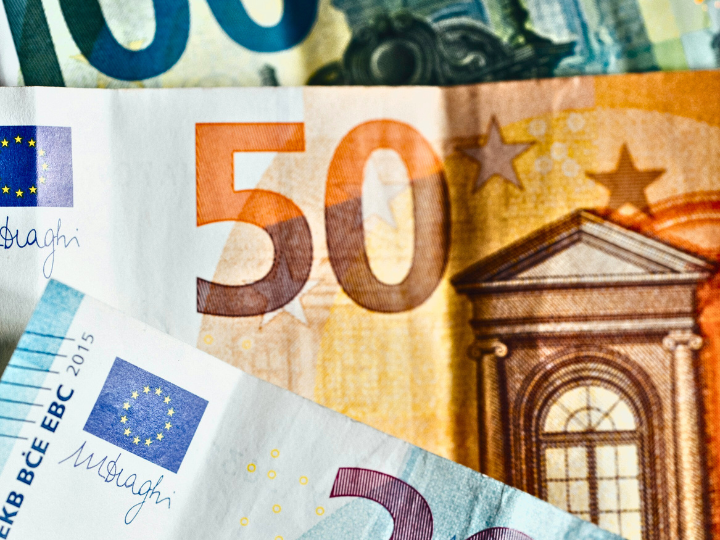The Agenda outlines the role that the use of Information and Communications Technologies (ICT) will have to play if the European Union wants to succeed in its ambitions for 2020.
‘We must put the interests of Europe’s citizens and business at the forefront of the digital revolution and so maximise the potential of ICT to advance job creation, sustainability and social inclusion’, said Commission VP Neelie Kroes. ‘The ambitious strategy set out shows clearly where we need to focus our efforts in the years to come. To fully realise the potential of Europe’s digital future we need the full commitment of Member States, the ICT sector and other vital economic players’.
A new single market
‘Citizens should be able to enjoy commercial services and cultural entertainment across borders. But EU online markets are still separated by barriers which hamper access to pan-European telecoms services, digital services and content’. The fact is that today there are four times as many music downloads in the US as in the EU because of the lack of legal offers and fragmented markets. The Commission intends to open up access to legal online content by simplifying copyright clearance, management and crossborder licensing.
The European Parliament welcomed the Commission proposal. EP Vice-President Silvana Koch-Mehrin (ALDE -Germany) commented: ‘It is good that Commissioner Kroes has quickly come through with this important and comprehensive document. The text makes very clear that the EU now needs impulses for growth that may derive in particular from the digital economy. We have to intensively explore new sources to boost the economy; therefore the European Union should take coherent action by the creation of a digital internal market’.
‘Every European Digital’
30% of the 250 million EU citizens have never used the internet. The answer of Ms Neelie Kroes in The Digital Agenda is clear: ‘Every European Digital! Everyone, young and old, irrespective of social background is entitled to the knowledge and skills they need to be part of the digital era since commerce, public, social and health services, learning and political life is increasingly moving online.’ The target for this digital inclusion is to halve the proportion of population that has never used the internet to 15% and at the same time to increase the more or less regular internet use from 60% to 75% by 2015.
Fully in line with the views of national Telecom and IT Ministers from the 27 Member States of the EU is one of the key performance targets of the Digital Agenda, that asks for an eGovernment in 2015, with 50% of the citizens using it with more than half of them returning filled in forms. In April the EU Telecom and IT Ministers signed, in Malaga, a declaration calling for’ more effective and efficient interoperable public services that emphasise open and transparent government and active participation’.
Also Openforum Europe’s Chief Executive Graham Taylor welcomed the Digital Agenda targets, ‘Consumers as well as the ICT industry will benefit from the plan’. And he applauded Commissioner Kroes for setting concrete targets by which to judge the success of the Digital Agenda, in particular her commitment to get half of all EU citizens communicating with their local and national governments by 2015.
‘The digital world affects us all’
According to Commissioner Kroes’ ‘Digital Agenda for Europe’, in the 21st century information and communication technologies have a crucial role to play in creating sustainable jobs and boosting Europe’s economic growth, as outlined in the Europe 2020 Strategy. So contributing to the economic recovery and long-term prosperity. While the ICT sector is responsible for 5 % of European GDP, it is responsible for more than 50% of the productivity growth in the EU.
To quote Harvard Professor Yochai Benker, ‘We have an opportunity to change the way we create and exchange information, knowledge, and culture. By doing so we can make the twenty first century one that offers individuals greater autonomy, political communities greater democracy, and societies greater opportunities for cultural self-reflection and human connection’
The Digital Agenda outlines seven priority areas for action and to the objectives of the Agenda some 100 specific follow actions, including 31 legislative proposals, are outlined. ‘Ambitious? Yes!’, Commissioner Kroes said during the presentation, ‘it is a tough challenge! In the coming months and years my fellow commissioners and I will work together with the EU institutions and stakeholders at all levels in all Member States to make the Digital Agenda a reality. Don’t forget: the digital world affects us all. There is no choice about that!
What we need is a digital internal market!
European Commission Vice-President and Commissioner Neelie Kroes introduced the Digital Agenda for Europe, the first of the seven flagship initiatives under the Europe 2020 Strategy for smart, sustainable and inclusive growth.


‘Citizens should be able to enjoy commercial services and cultural entertainment across borders. But EU online markets are still separated by barriers which hamper access to pan-European telecoms services, digital services and content’.
MORE ON Digital Agenda
- Cybersecurity - a key component in the new Digital Era
- 10 principles, 5 years, 1 challenge: to achieve a European Digital Strategy that truly works for consumers
- The Digital Agenda for Europe





